





Answer:
Tuition-Free + Stipend:Public vocational schools charge no tuition fees, and enterprises provide monthly apprentice stipends (approximately €800-1,200), significantly reducing study-abroad costs.Integration of Theory and Practice:70% of the time is spent on practical training in enterprises, and 30% on theoretical learning at school. This ensures graduates directly meet the requirements of target positions upon graduation.
High Employment Rate:The employment rate of graduates from Germany’s Dual System exceeds 90%, and they can seamlessly join German enterprises (such as Volkswagen, Siemens, etc.).Internationally Recognized Certificates:After passing Germany’s IHK/HWK vocational qualification exams, the certificates are valid throughout the EU and highly recognized by German-funded enterprises in China.
Answer:
Academic Requirements:Graduation from a domestic senior high school, secondary vocational school, or higher vocational college (APS academic certification is required).
Age Limit:Typically 17-30 years old; relaxation is allowed for some shortage majors (e.g., nursing).
Language Requirement:German proficiency at level B1-B2 (level B2 is required for nursing-related programs, while level B1 is accepted for some technical programs).
Major Matching:Applicants must have internships or basic skills related to the applied occupation (e.g., mechanical and electrical engineering, auto repair, nursing, etc.).
Answer:
Zero German Foundation is Acceptable:Some programs offer dual "language + skills" training (e.g., nursing programs). Students first learn German to level B1 in China, then further strengthen it to level B2 after arriving in Germany.
German Learning Recommendations:Full-time study in China for 6-8 months can lead to reaching level B1. The Goethe-Institut or TestDaF preparation courses are recommended.
Language Waiver:A small number of engineering programs (e.g., mechatronics) allow English-taught courses, but German remains an essential skill for daily life and work.
Answer:
Cost Composition:Domestic Phase: Language training + agency services cost approximately RMB 90,000-120,000.
German Phase: Living expenses are about RMB 80,000-100,000 per year (over 80% of which can be covered by the enterprise stipend).
Real Case Example:A nursing major student receives a monthly stipend of around €1,000. Accommodation is provided or subsidized by the enterprise, resulting in an actual monthly expenditure of only €300-500.
Answer:
International Recognition:IHK/HWK certificates are regarded as the "gold standard" in the EU. German-funded enterprises in China (e.g., Bosch, BMW) give priority to hiring holders of these certificates.
Domestic Recognition in China:These certificates are highly recognized by German-funded enterprises in China. In some provinces (e.g., Jiangsu, Guangdong), they are included in skilled talent introduction programs, enabling holders to directly receive subsidies.
Answer:
Work Visa:Graduates of the Dual System can directly apply for an 18-month job-seeking visa. After finding a job, they can convert it to a work residence permit.
Immigration Pathways:Those who have worked for 2 years (with an annual salary of €57,600) can apply for an EU Blue Card.Those who have worked for 5 years (with German proficiency at level B1 plus social security contributions) can apply for permanent residency.
Advantages for Shortage Occupations:Majors such as nursing, IT, and mechanical & electrical engineering fall into the fields with talent shortages in Germany, so the immigration policies for these majors are more lenient.
Answer:
Demand from German-Funded Enterprises in China:German companies’ Chinese branches (e.g., Volkswagen, BASF) recruit a large number of talents with Dual System backgrounds annually, with a starting salary of RMB 12,000-18,000 per month.
Vocational Education Sector:Domestic vocational schools hire teachers with Dual System experience at competitive salaries. For example, Qingdao Electronic School recruits interdisciplinary teachers proficient in German and technical skills, offering an annual salary of over RMB 250,000.
Policy Support:The State Council’s National Vocational Education Reform Implementation Plan explicitly supports the introduction of international vocational qualification standards, providing broader promotion channels for Dual System talents.
Answer:
Challenges: German professional terminology,Intensive practical training (3-4 days of corporate internships per week),Cross-cultural communication Adaptation.
Suggestions: Learn basic German and professional skills (e.g., simple mechanical operations) in China in advance.Choose German cooperative enterprises with Chinese support (e.g., some nursing institutions have Chinese mentors).Pay attention to "Sino-German Dual System cooperation programs," where the domestic foundation course phase enables seamless connection to the German phase.
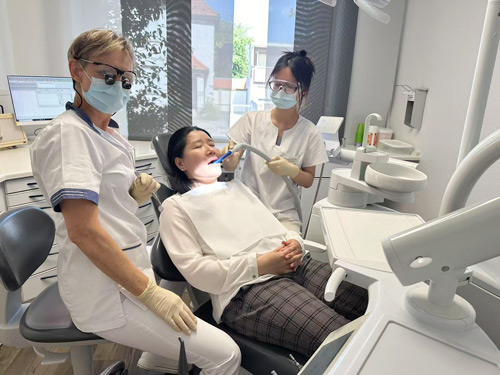 Dental Assistant Training
Dental Assistant Training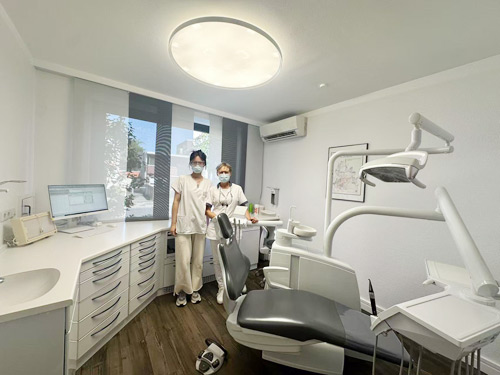 Dental Assistant Training
Dental Assistant Training Cooperative Dental Clinics
Cooperative Dental Clinics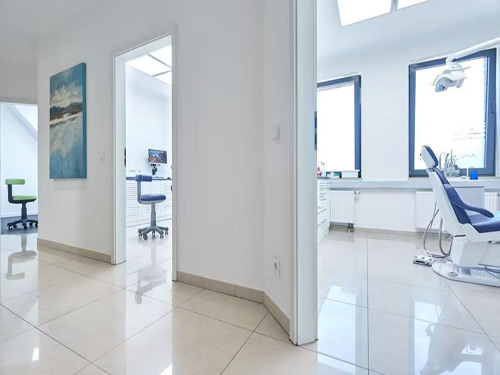 Cooperative Dental Clinics
Cooperative Dental Clinics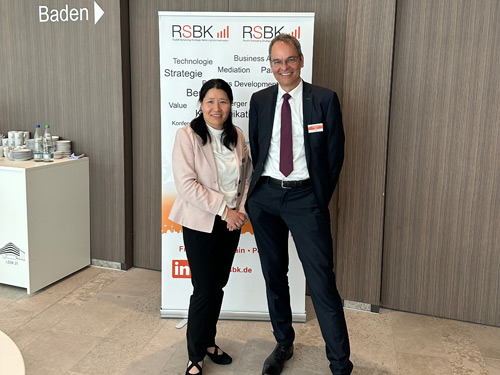 Goethe-Institut German Education Experts
Goethe-Institut German Education Experts Airport Pick-up for Students
Airport Pick-up for Students Leisure Activities and Student Gatherings
Leisure Activities and Student Gatherings Students go to the beach in their spare time
Students go to the beach in their spare time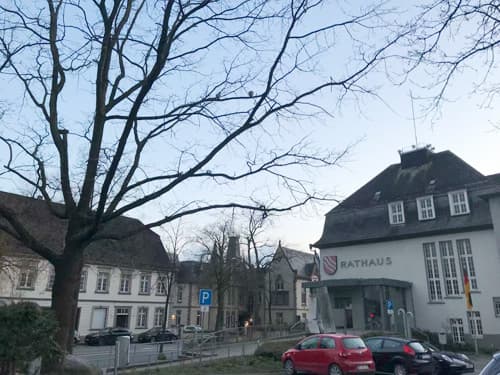 Assist students with registration (for residency)
Assist students with registration (for residency)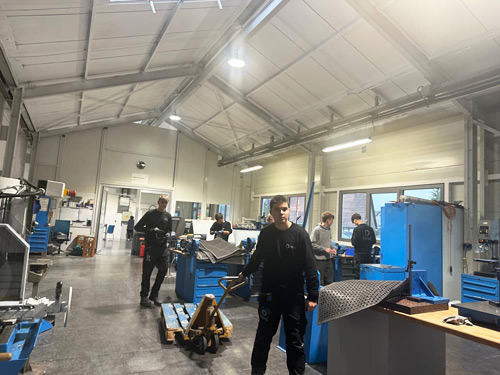 Partner factory
Partner factory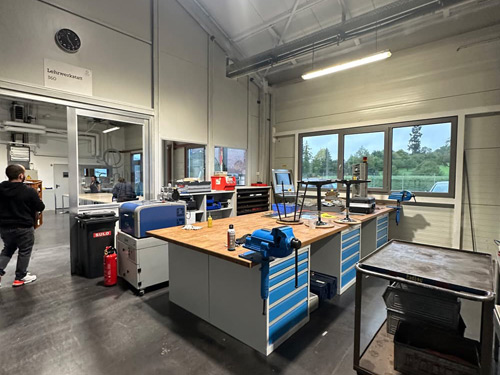 Partner factory
Partner factory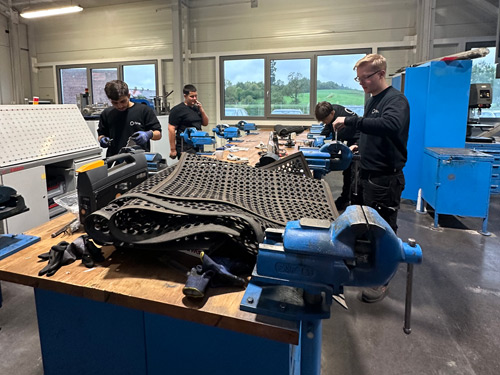 Partner factory
Partner factoryRoom 205, Building 4, No. 430 Fumin Avenue , 223800, Suqian City, Jiangsu Province, China
German Office:Anton-Kux-Str. 2 41460 Neuss
0086-18452961508
DefengBusinessBridge@borussia-consulting.com

Business Consulting

Study Abroad Consulting